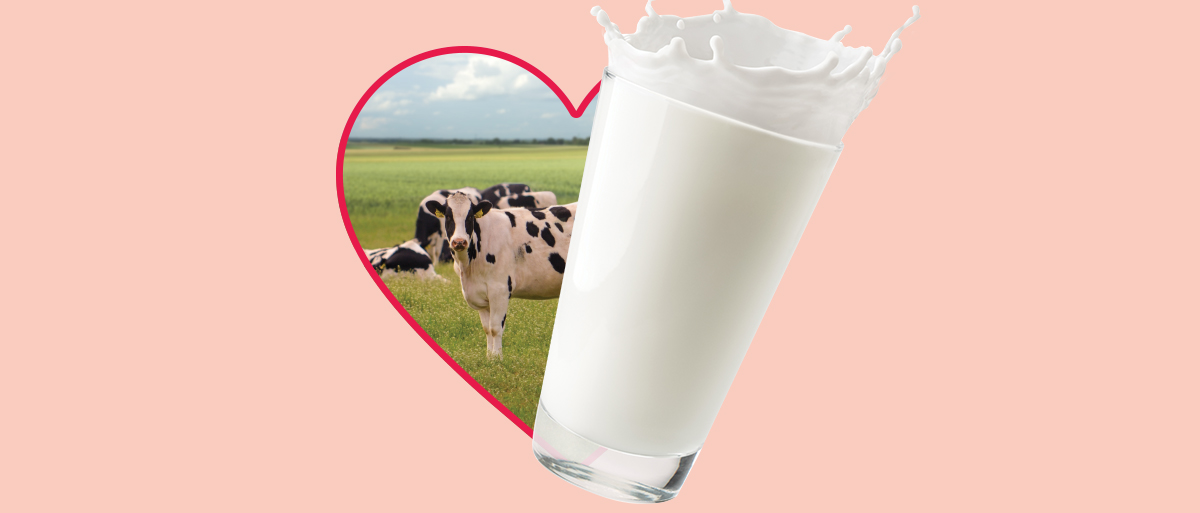Let’s be real: Whole-fat milk, cheese and yogurt taste better than the low-fat versions because they tend to be creamier and more satisfying. Yet many have thought that low-fat dairy is healthier for us – especially for our hearts.
Breaking news: You no longer have to give up those delicious dairy foods in the name of heart health! Decades of studies and research already link dairy foods – like milk, cheese and yogurt – with heart health benefits. And emerging research specifically examines how blood pressure is affected when eating whole-fat dairy foods instead of low-fat dairy foods in a heart-healthy eating plan.
Start With the Facts: Heart Health Is Still a Struggle
Since 1949, the American Heart Association has funded more than $5 billion in research. Yet cardiovascular disease (CVD) remains the leading cause of death, accounting for 928,741 deaths in the United States in 2020, and 122.4 million (46.7%) Americans battle high blood pressure.
Fortunately, you can help lower your risk of cardiac events like CVD and high blood pressure by maintaining healthy eating habits and implementing the Dietary Approaches to Stop Hypertension (DASH) eating plan – plus, it appears that whole-fat dairy is still on the menu.
The DASH Eating Plan Is Well Established
The DASH eating plan has maintained its position in the top two eating plans to promote heart health for more than 25 years. The traditional DASH eating plan is low in fat and saturated fat. It focuses on eating three servings of low-fat and fat-free dairy foods daily, as well as fruits and vegetables, whole grains, fish, lean meats, nuts, seeds and legumes. Ultimately, DASH aims to deliver calcium, potassium, magnesium, fiber and protein – all key nutrients for healthy blood pressure and a healthy heart. Dairy foods provide four of those heart healthy nutrients (with the exception of fiber) and milk alone provides a total of 13 essential nutrients associated with various health benefits.
The Recent Data: Whole-Fat Dairy Foods and Blood Pressure
A 2016 study compared results for those on the traditional DASH eating plan (with low-fat dairy) versus those on a modified version of the plan (with whole-fat dairy). The results were surprising:
- Lowered blood pressure to the same extent as the traditional DASH eating plan
- Showed no significant increase in LDL-cholesterol (LDL-C, or the “bad” cholesterol), despite the higher saturated fat content
- Actually improved atherogenic dyslipidemia markers (e.g., reduced triglycerides and small, dense LDL-C particles)
This clinical study adds to a whole body of scientific literature suggesting that whole milk and reduced-fat dairy consumption is not associated with cardiac events as was once thought, but rather has been shown to reduce the risk of CVD and to have positive effects on blood pressure.
We know that the difficult part of a new eating plan is giving up the foods we love – so getting to add delicious full-fat dairy to the DASH eating plan makes it easier to stick to a heart-healthy lifestyle. Multiple studies have shown that people who regularly enjoy milk, cheese and yogurt also have a lower risk of both heart disease and stroke.
Key Takeaway: Aim for the recommended three servings of dairy foods daily – including whole-fat dairy foods if you prefer them – along with a variety of fruits, vegetables, whole grains and lean meats.
Not sure where to start? We’ve got you covered! Check out this DASH eating plan recipe round-up or search all our recipes.




